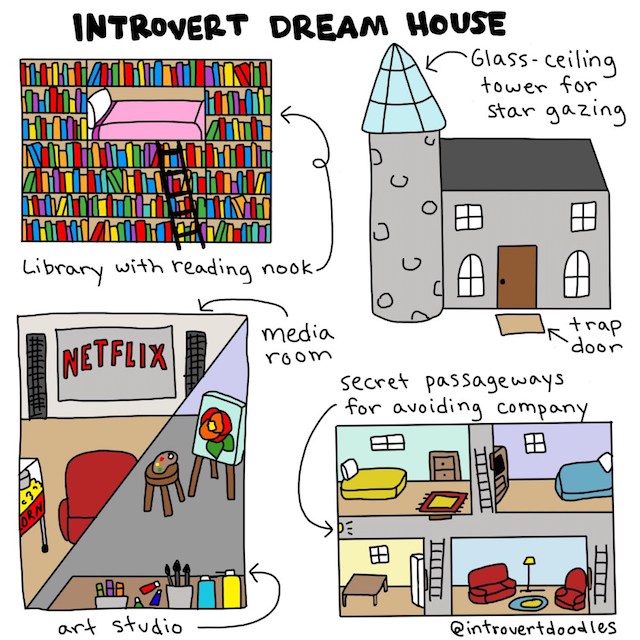
Introverts are deeply intuitive souls.
This causes them to be ultra sensitive to other people’s energy levels and it also means that they are highly tuned to their surrounding environment.
This means that other people’s energy levels and the energy from the surrounding environment can become overbearing, resulting in an overwhelming desire to retreat and spend time alone.
Introverts often prefer to exist in absolute silence, especially when they are around people they do not know well. They do not need any external entity or company to make them feel like they are not alone, as they are highly sensitive and aware of their connection to all things.
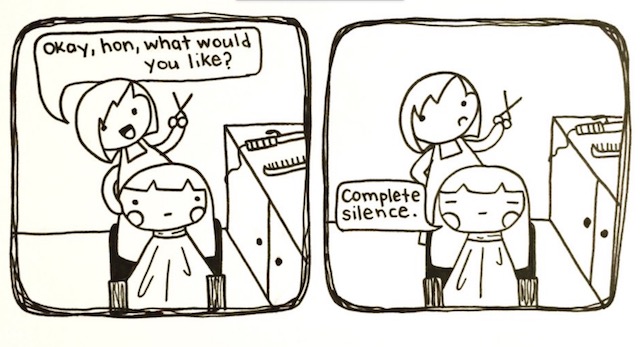
Introverts are introspective, therefore, they have an incredible amount of data constantly flushing through their minds at all times particularly when they are surrounded by other people, so it is vital that they spend time alone to soothe the constant inner chatter.
By choice, introverts would hibernate winter away, scurry out in the spring to gather and collect necessities for their nest, and then settle back into their haven where they feel loved, understood, and safe.
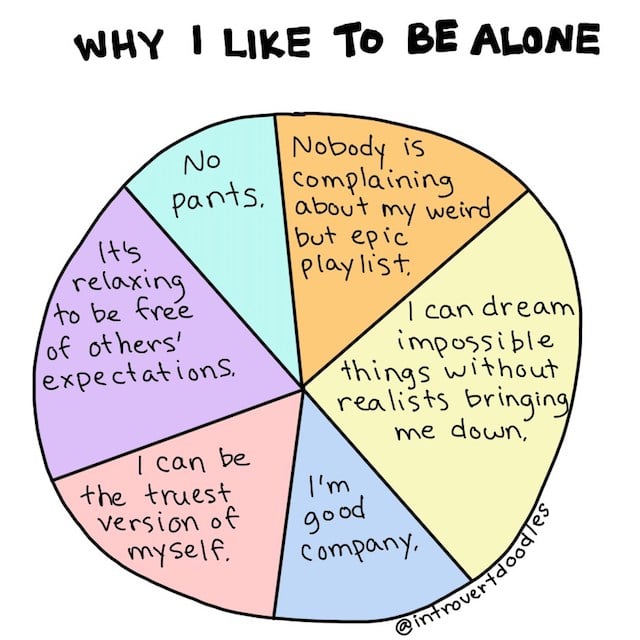
Introverts ache to go out, yet feel strongly compelled to stay indoors. The main reason for this is that the world seems to be full of extroverted people, and social gatherings are mostly structured to suit their desires and preferred lifestyles.
Socializing for an introvert can be a minefield. They can get so preoccupied with observing and analyzing what other people are thinking, feeling, and saying that they end up absorbing stimuli, pondering every response, projecting their emotions, and becoming overwhelmed and over-stimulated.
An introvert’s ideal social scenario would likely consist of a small collection of friendly but nonintrusive people, a roaring fire glowing softly and warming the room, possibly a guitar or piano being elegantly played in the corner, tables positioned around the edges of the room with barriers around them so that they feel somewhat protected, lights dimmed with candles burning, and gentle but high vibrational energy permeating the room—and possibly a mug of hot cocoa.
To top it off, there would also likely be a resting room where they can retreat to and sit back, comforted by pillows and cushions, and with little noise. This allows them to recharge, ground, and center before re-emerging refreshed to continue with the evening. Oh, and don’t forget some deep, thought-provoking conversation.
Introverts enjoy going out, but their perfect evening is usually a cozy night in with good food, something delicious to drink, blankets, and a beautifully written, mind-challenging book. They use alone time as a way to kick back and retreat into their cave for a mini hibernation where they find solitude, safety, and silence.
Introverts tend to avoid engaging in social niceties, gossip, and chatter about matters that are of no particular concern to them. However, if it is a subject close to their heart, it can be almost impossible to draw the conversation to a close.

Small talk can feel intrusive. When a colleague, acquaintance, or stranger asks personal information, they may take offense or feel intimidated by the questioning. They do not like to share personal information with anyone they do not know well or trust. They avoid answering anything they might feel crosses their boundaries, however trivial it may seem.
For introverts to feel comfortable and relaxed, they must feel at peace within their surroundings. This means that places with high stimuli, such as, bars, cafes, shopping malls, or basically anywhere where there is a large gathering of people can turn into extremely stressful experiences.
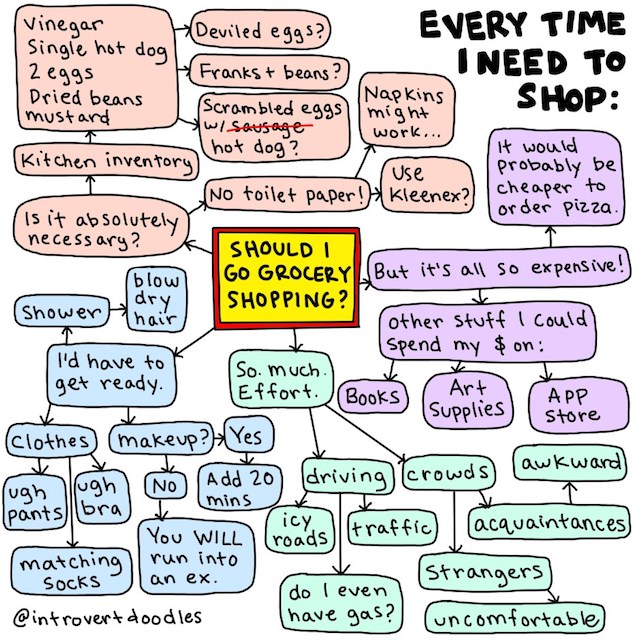
After attending social functions, introverts may feel completely exhausted and temporarily debilitated, meaning that all we will want to do is sleep or rest, possibly alone, until the sensations from the occasion have worn off.
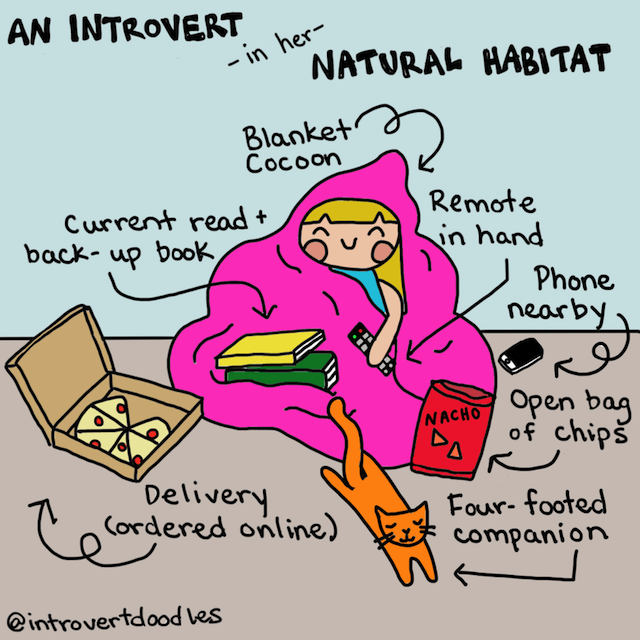
Many introverts suffer with either mild or extreme social anxiety and they may appear as quiet, shy, aloof, unsociable, unwilling to engage, and maybe even as though they view themselves as superior to others.
However, none of these things could be further from the truth. Generally, introverts love close human interactions and forging bonds, although they are only fully comfortable if the connections are mutually enjoyable and harmonious.
Introverts can often be edgy and nervous in front of people, particularly with those they do not feel comfortable with, so they may appear awkward, clumsy, bewildered, and shy and all of these things just heighten their anxiety further.

Introverts become familiar with cancelled plans. If it is someone else that cancels plans, it can feel like a huge relief as the worry has been taken away from having to attend something that will potentially be exhausting or uncomfortable.
Often though, introverts are the ones to cancel. At the time, an event can seem like a great idea, but as it draws closer, the thought of all the stress that might be involved can become too much to bear. Cancelling is simple compared to the thought of how much time, energy, and anxiety will be involved if they have to attend.
Phones are an introvert’s nemesis. They find them a violation of their personal space when the ringtone demands attention—an intrusive device that zaps their energy.
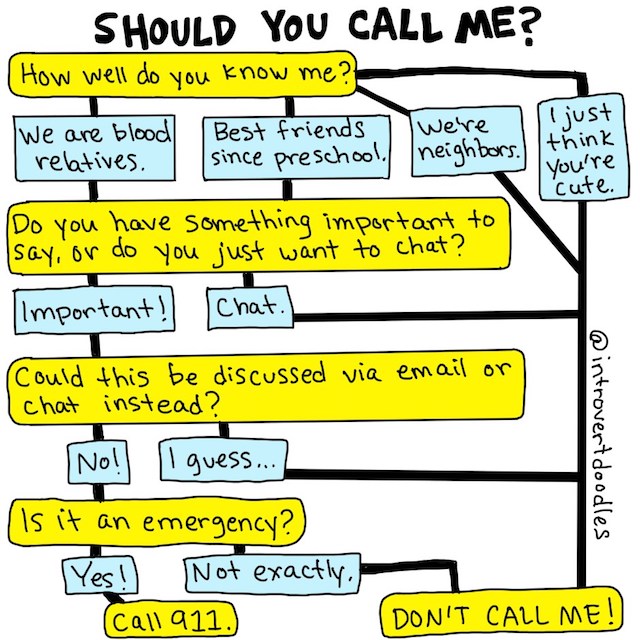
Introverts may not always reply to texts or calls unless they feel comfortable before responding. If their frame of mind isn’t right, they will find it a struggle to communicate and will delay responding until the moment feels right. Introverts are highly unlikely to start calls or conversations unless they feel completely at ease to do so.
Usually introverts become introverted or reclusive over time as they struggle to find other people who experience life as they do. This can cause them to feel as though they exist on the outer edge of society and, although they enjoy solitude, it can bring with it painful and overwhelming loneliness at times.
This leads introverts to develop a strong affinity to the animal kingdom—cats or dogs (or both) for many. Introverts have a unique bond with pets, which is why they become faithful and loyal companions. The precious bond is treasured, as without pets many introverts would not experience a deep soul connection with another living thing.
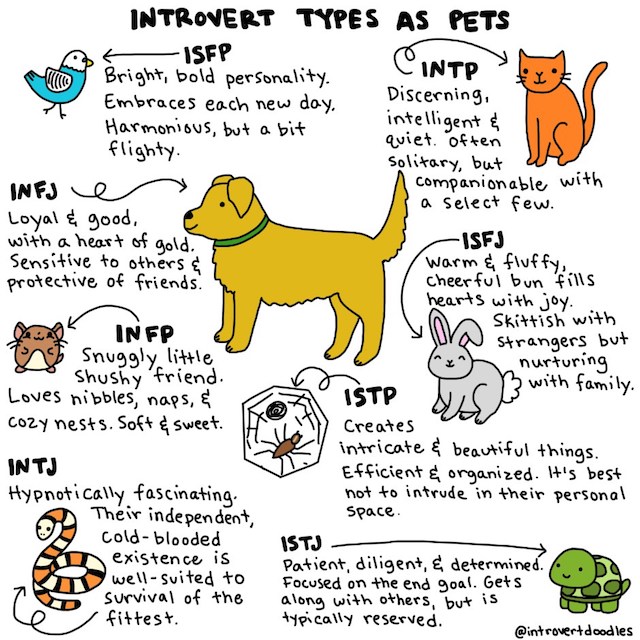
Quite often, introverts treat the animals they share their homes with similar to how they would treat children. They nurture and care for them and create a safe pack. The animals are tended to, shown unconditional love, and treated as part of the family. Introverts find being around animals calming and soothing, and we are most content when we are watching their curious, gentle, and genuine natures.
Asides from animals, introverts seem to be able to count the amount of their “real life” friends on a few fingers, but internet friends? That’s a totally different matter!
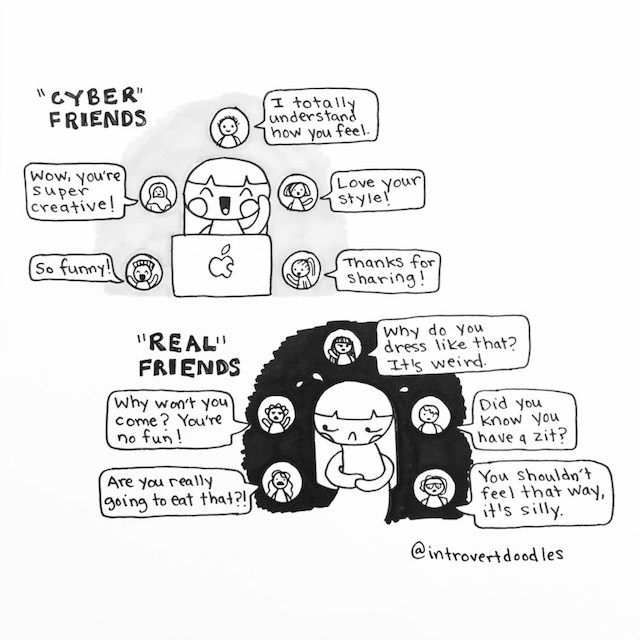
~
Relephant Reads:
11 Things Introverts Want You To Know.
If You Aren’t an Introvert or Extrovert, You Are likely This. {Plus Test}
~
Author: Alex Myles
Image: Introvert Doodles; Book
Editor: Travis May
Copy Editor: Callie Rushton
Social Editor: Travis May

 Share on bsky
Share on bsky






Read 19 comments and reply